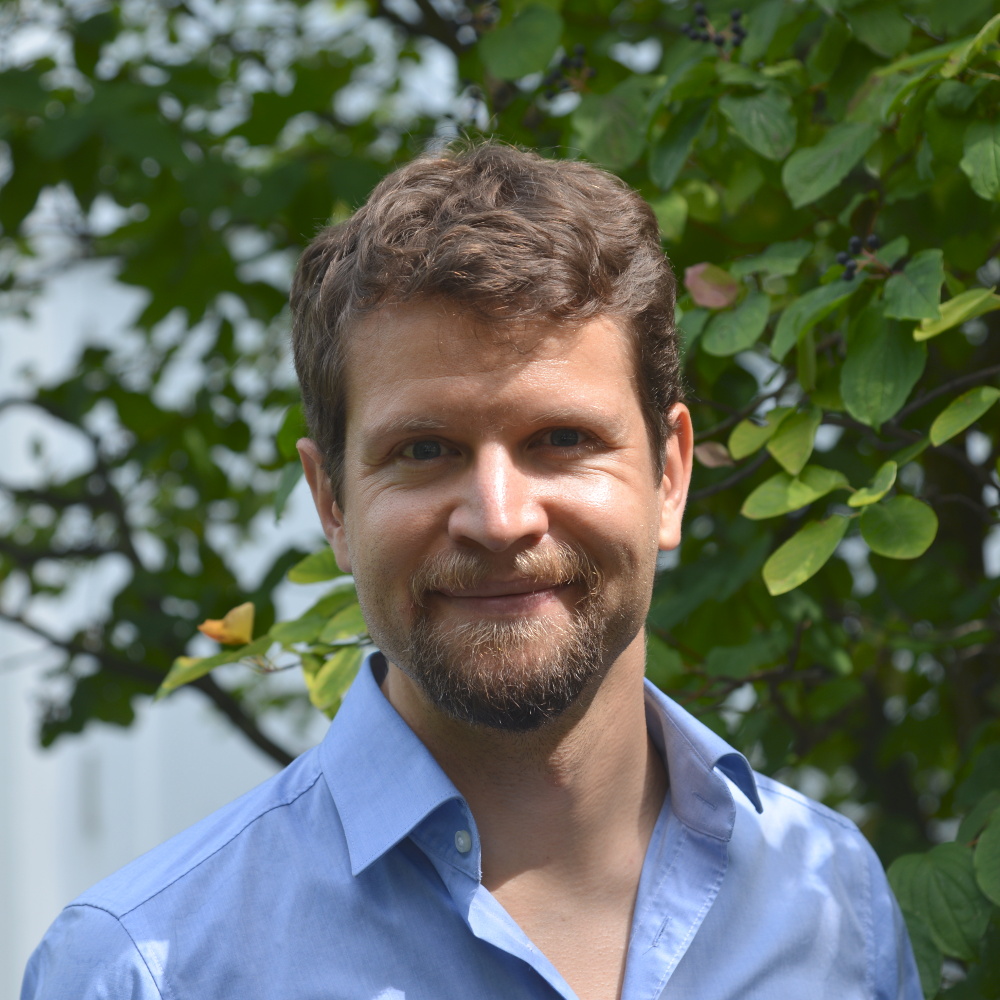Hartwig Anzt (Karlsruhe Institute of Technology)
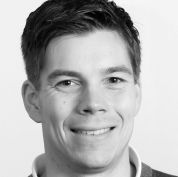 The research of Hartwig Anzt is about developing and optimizing numerical methods for efficient high-performance computing. In particular, Hartwig is interested in sparse linear algebra, iterative and asynchronous methods, Krylov solvers, and parallel preconditioning methods. Hartwig also works on fault tolerance, energy efficiency, as well as GPU computing. He is the head of the Junior Research Group Fixed-Point Methods for Numerics at Exascale (FiNE) at Karlsruhe Institute of Technology [1]. He is part of the CUDA Center of Excellence, and involved in the projects BEAST and MAGMA, where he in particular contributes functionalities for sparse linear algebra. He is the managing lead of the Ginkgo numerical linear algebra package. Within the Exascale Computing Project, he is part of the effort "Production-ready, Exascale-Enabled, Krylov Solvers (PEEKS) for Exascale Computing". [2]
The research of Hartwig Anzt is about developing and optimizing numerical methods for efficient high-performance computing. In particular, Hartwig is interested in sparse linear algebra, iterative and asynchronous methods, Krylov solvers, and parallel preconditioning methods. Hartwig also works on fault tolerance, energy efficiency, as well as GPU computing. He is the head of the Junior Research Group Fixed-Point Methods for Numerics at Exascale (FiNE) at Karlsruhe Institute of Technology [1]. He is part of the CUDA Center of Excellence, and involved in the projects BEAST and MAGMA, where he in particular contributes functionalities for sparse linear algebra. He is the managing lead of the Ginkgo numerical linear algebra package. Within the Exascale Computing Project, he is part of the effort "Production-ready, Exascale-Enabled, Krylov Solvers (PEEKS) for Exascale Computing". [2]
Marco Berghoff (Karlsruhe Institute of Technology)
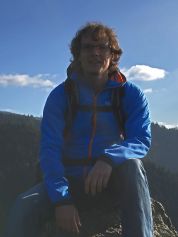 Marco Berghoff received his diploma in mathematics from the University of Paderborn, Germany, with a focus on microlocal analysis, numerics, and physics. He has been a member of the Karlsruhe Institute of Technology, at the Institute for Applied Materials, where he received his PhD in Computational Materials Science. He has years of experience in multiscale modeling and high performance optimization, with the atomistic phase-field crystal model and the mesoscopic phase-field method.
Marco Berghoff received his diploma in mathematics from the University of Paderborn, Germany, with a focus on microlocal analysis, numerics, and physics. He has been a member of the Karlsruhe Institute of Technology, at the Institute for Applied Materials, where he received his PhD in Computational Materials Science. He has years of experience in multiscale modeling and high performance optimization, with the atomistic phase-field crystal model and the mesoscopic phase-field method.
As a postdoctoral researcher in the Simulation Laboratory NanoMicro, he has introduced the framework NAStJA, and currently leads the developments. He is involved in several activities within this project, in particular in the development of large-scale simulations for biological or material science research topics.
Timo Bingmann (Karlsruhe Institute of Technology)
Timo Bingmann recently received his PhD from the Karlsruhe Institute of
Technology where he works in Prof. Peter Sander's group. He received a
Diploma degree in Computer Science in 2010 at the same university, and a
second Diploma degree in Mathematics from the FernUniversity in Hagen in
2016. His main research topic is algorithm engineering for the basic
toolbox focused on modern parallel and distributed computing
architectures. His current project is called Thrill, which is a C++
framework for high performance distributed computing with a convenient
interface.
Tilmann Gneiting (Heidelberg Institute of Theoretical Studies)

Tilmann Gneiting is Group Leader at Heidelberg Institute of Theoretical Studies (HITS gGmbH) and Professor of Computational Statistics at Karlsruhe Institute of Technology (KIT). His research focuses on the theory and practice of forecasting, with applications in meteorology, hydrology, economics, and finance, among other disciplines. Every year since 2014, he has been included in the Highly Cited Researchers listing in the academic field of Mathematics.
Hans-Jürgen Goebelbecker (Karlsruhe Institute of Technology)
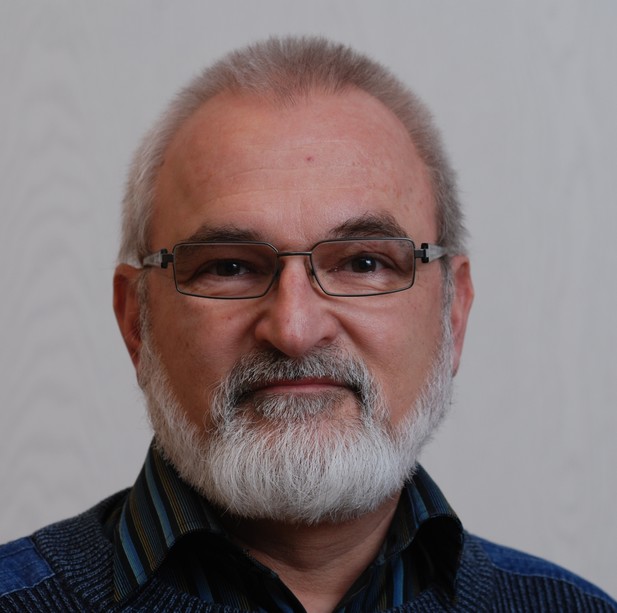 coming soon...
coming soon...
Kevin Gomez (Leipzig University)
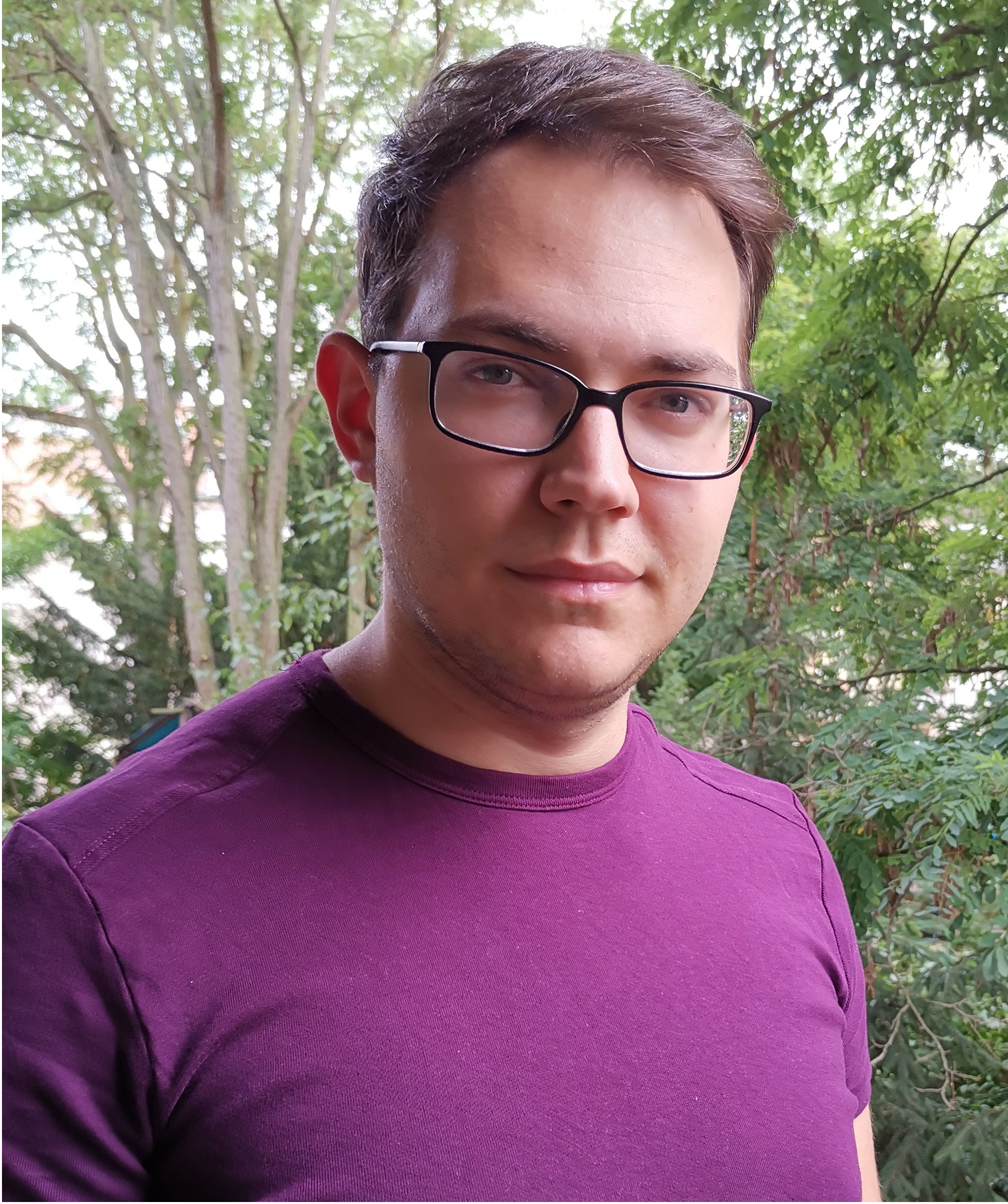 Kevin Gomez works as a computer science researcher at the University of Leipzig. His area of research is distributed graph processing and analytics. Besides that, he is interested in optimization techniques on graph data like graph partitioning. He received his Master's degree in 2018, during his studies he was working as a research assistant at the database department of the university and is up until now part of the core developer team of GRADOOP. During his time at the university, he supervised several bachelor and master theses within the topic of distributed graph processing with GRADOOP and Apache Flink
Kevin Gomez works as a computer science researcher at the University of Leipzig. His area of research is distributed graph processing and analytics. Besides that, he is interested in optimization techniques on graph data like graph partitioning. He received his Master's degree in 2018, during his studies he was working as a research assistant at the database department of the university and is up until now part of the core developer team of GRADOOP. During his time at the university, he supervised several bachelor and master theses within the topic of distributed graph processing with GRADOOP and Apache Flink
Julia Hahn (Karlsruhe Institute of Technology)
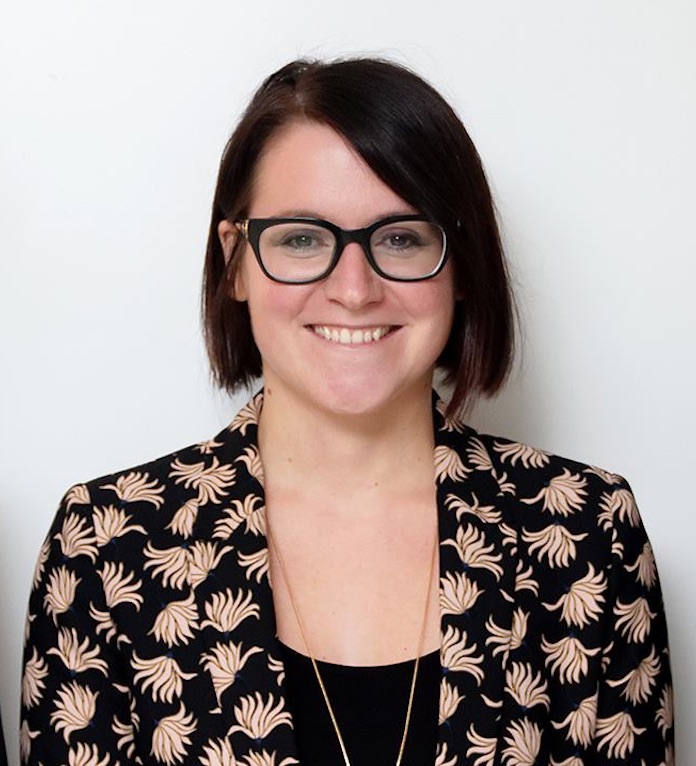 Dr. Julia Hahn has been a researcher at the Institute for Technology Assessment and Systems Analysis (ITAS) at the Karlsruhe Institute of Technology (KIT) since 2011. She has experience working in several EU-funded projects (Responsible Research and Innovation in Practice, Responsible Industry, Parliaments and Civil Society in Technology Assessment), especially focusing on small and large scale stakeholder and citizen engagement. Her research interests include participatory methods of Technology Assessment, interdisciplinary and cultural perspectives of sustainability and Responsible Research and Innovation. She obtained her PhD in Philosophy at KIT focusing on the conceptual and practical implications of a global Technology Assessment, particularly in Germany, China and India.
Dr. Julia Hahn has been a researcher at the Institute for Technology Assessment and Systems Analysis (ITAS) at the Karlsruhe Institute of Technology (KIT) since 2011. She has experience working in several EU-funded projects (Responsible Research and Innovation in Practice, Responsible Industry, Parliaments and Civil Society in Technology Assessment), especially focusing on small and large scale stakeholder and citizen engagement. Her research interests include participatory methods of Technology Assessment, interdisciplinary and cultural perspectives of sustainability and Responsible Research and Innovation. She obtained her PhD in Philosophy at KIT focusing on the conceptual and practical implications of a global Technology Assessment, particularly in Germany, China and India.
Andreas Herten (FZ Jülich)
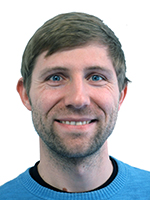 Andreas made his PhD as an experimental particle physicist at Forschungszentrum Jülich/Ruhr University Bochum. He investigated the application of graphics processing units (GPUs) for track reconstruction in the online event selection system of the PANDA experiment. After graduating he joined the NVIDIA Application Lab of the Supercomputing Centre of Forschungszentrum Jülich, where he enables scientific applications for GPUs and improves their performances.
Andreas made his PhD as an experimental particle physicist at Forschungszentrum Jülich/Ruhr University Bochum. He investigated the application of graphics processing units (GPUs) for track reconstruction in the online event selection system of the PANDA experiment. After graduating he joined the NVIDIA Application Lab of the Supercomputing Centre of Forschungszentrum Jülich, where he enables scientific applications for GPUs and improves their performances.
Janis Keuper (Hochschule Offenburg)
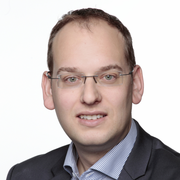 Janis Keuper recieved his masters and PhD in computer science at University of Freiburg. He was a senior researcher and groupleader of the "Large Scale Machnine Learning" group at Fraunhofer-Institut für Techno- und Wirtschaftsmathematik in Kaiserslautern. Since 2019 he is Professor for Analytics and Data Science at Hochschule Offenburg. His research is focus on scalable
Janis Keuper recieved his masters and PhD in computer science at University of Freiburg. He was a senior researcher and groupleader of the "Large Scale Machnine Learning" group at Fraunhofer-Institut für Techno- und Wirtschaftsmathematik in Kaiserslautern. Since 2019 he is Professor for Analytics and Data Science at Hochschule Offenburg. His research is focus on scalable
machine learning systems, especially Deep Learning.
Valentin Kozlov (Karlsruhe Institute of Technology)
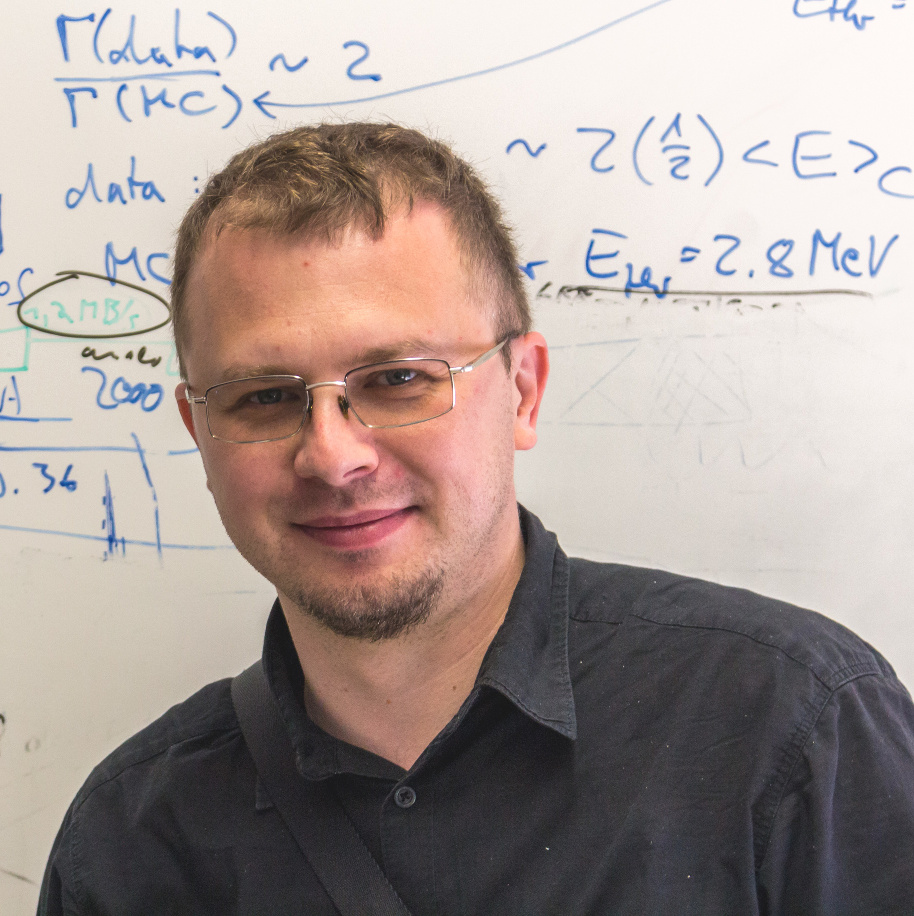 Dr. Valentin Kozlov is a research scientist at Karlsruhe Institute of Technology, the department of Data Analytics, Access and Applications (D3A). His current main project is called "DEEP Hybrid DataCloud", aiming at supporting scientists in using intensive computing techniques, e.g. such as machine and deep learning. He holds a Ph.D. in experimental physics from Katholieke Universiteit Leuven (K.U.Leuven, Belgium). As a physicist he actively participated in the analysis and planning of various international experiments.
Dr. Valentin Kozlov is a research scientist at Karlsruhe Institute of Technology, the department of Data Analytics, Access and Applications (D3A). His current main project is called "DEEP Hybrid DataCloud", aiming at supporting scientists in using intensive computing techniques, e.g. such as machine and deep learning. He holds a Ph.D. in experimental physics from Katholieke Universiteit Leuven (K.U.Leuven, Belgium). As a physicist he actively participated in the analysis and planning of various international experiments.
Philipp Krenn (Elastic)
 Philipp lives to demo interesting technology. Having worked as a web, infrastructure, and database engineer for over ten years, Philipp is now working as a developer advocate at Elastic — the company behind the open source Elastic Stack consisting of Elasticsearch, Kibana, Beats, and Logstash. Based in Vienna, Austria, he is constantly traveling Europe and beyond to speak and discuss open source software, search, databases, infrastructure, and security.
Philipp lives to demo interesting technology. Having worked as a web, infrastructure, and database engineer for over ten years, Philipp is now working as a developer advocate at Elastic — the company behind the open source Elastic Stack consisting of Elasticsearch, Kibana, Beats, and Logstash. Based in Vienna, Austria, he is constantly traveling Europe and beyond to speak and discuss open source software, search, databases, infrastructure, and security.
Zheng Meyer-Zhao (ASTRON)
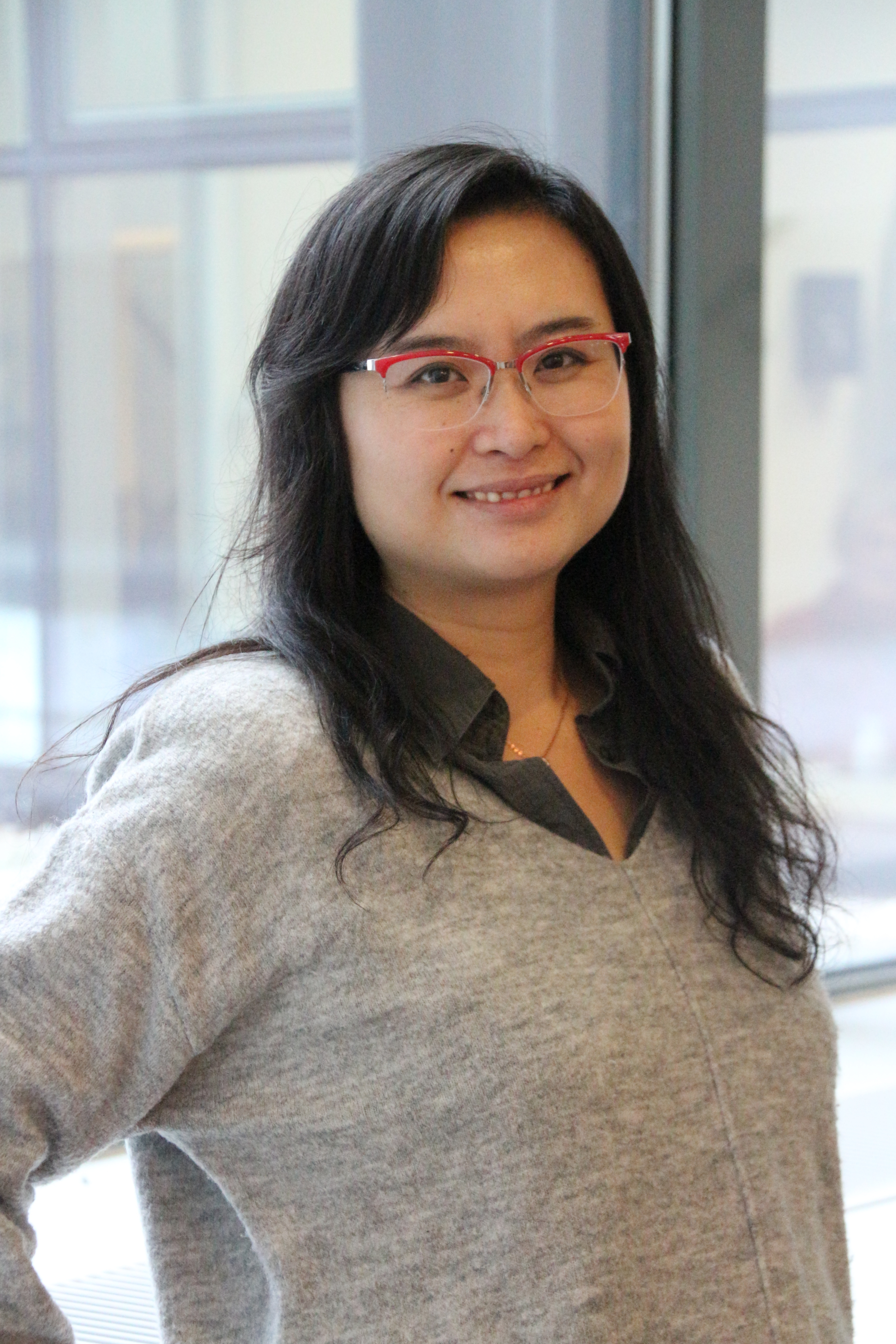
Zheng has worked as a software engineer for Radio Astronomy for many years. She is passionate about parallel programming with MPI and data processing on HPC/HTC systems. Zheng obtained two master degrees in Computer Science at Free University of Brussels (Vrije Unversiteit Brussel), one is specialised in parallel programming, and the other one in Artificial Intelligence.
Oliver Oberst (IBM)
 Oliver Oberst made his PhD in particle physics at the KIT focused on analysis of QCD data from the CMS Experiment and development of tools to manage virtualized worker nodes. After two years as a post doc at KIT, managing the CMS Tier 1 contact team for GridKa as-well as coordinating the German CMS grid computing group (DCMS), Oliver joint IBM as an Industry Solution Architect. Since then he designs solutions for research and higher-education customers with emphasis on technical computing (HPC, HTC), big data analytics and cloud computing.
Oliver Oberst made his PhD in particle physics at the KIT focused on analysis of QCD data from the CMS Experiment and development of tools to manage virtualized worker nodes. After two years as a post doc at KIT, managing the CMS Tier 1 contact team for GridKa as-well as coordinating the German CMS grid computing group (DCMS), Oliver joint IBM as an Industry Solution Architect. Since then he designs solutions for research and higher-education customers with emphasis on technical computing (HPC, HTC), big data analytics and cloud computing.
Tilman Plehn (Heidelberg University)
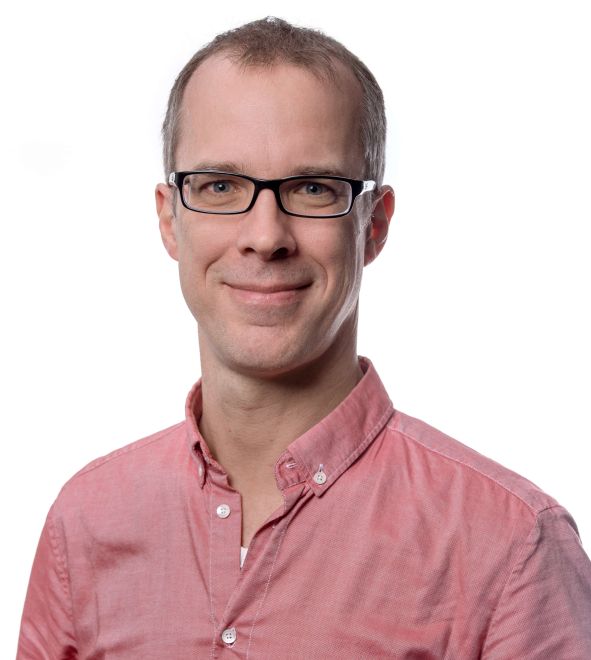 Tilman Plehn studied physics and recieved his PhD at the University of Hamburg and DESY. He was a Researcher and Visiting Assistant Professor at the University of Wisconsin, Madison and Fellow at CERN. Since 2008 he is a Professor for theoretical paticle physics at Heidelberg University. His research interest includes the application of modern machine learning techniques in LHC physics.
Tilman Plehn studied physics and recieved his PhD at the University of Hamburg and DESY. He was a Researcher and Visiting Assistant Professor at the University of Wisconsin, Madison and Fellow at CERN. Since 2008 he is a Professor for theoretical paticle physics at Heidelberg University. His research interest includes the application of modern machine learning techniques in LHC physics.
Edmund Preiss (Intel)
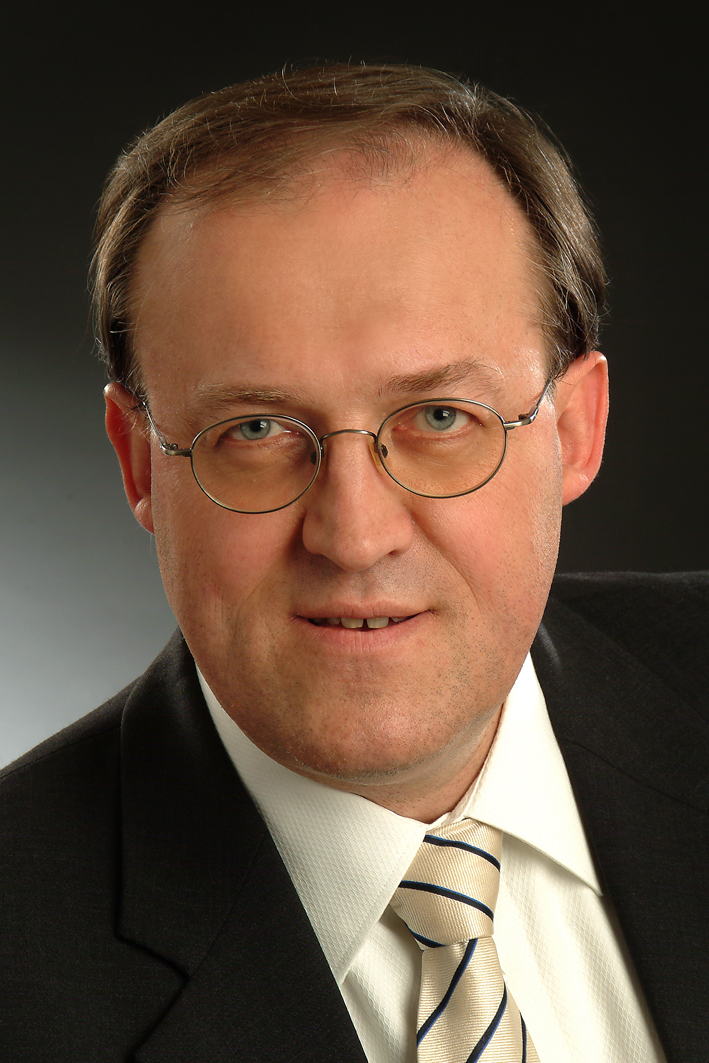 Edmund Preiss is a European Business Development Manager for Intel’s Software Developer Tools, a position he has held for 11+ years. The Intel Tools products includes components such as Compilers, AI Frameworks, Libraries and Performance Analysis tools for R&D, HPC, academia, enterprise, manufacturing, automotive and machine/deep learning segments and applications.
Edmund Preiss is a European Business Development Manager for Intel’s Software Developer Tools, a position he has held for 11+ years. The Intel Tools products includes components such as Compilers, AI Frameworks, Libraries and Performance Analysis tools for R&D, HPC, academia, enterprise, manufacturing, automotive and machine/deep learning segments and applications.
Edmund Preiss joined Intel in 1988 and has since managed various product marketing, technical and business development programs/projects and teams.
He held several roles such as the Intel’s European Strategic Software Planning within Intel’s Software and Solutions Group and was the European channel marketing manager for Intel’s Web Hosting Services (Intel Online Services).
He holds a Diploma of Electronic Engineering and brings with more than 35 years of Industry experience. Beside Intel he worked in the semiconductor business for the following companies: Siemens Semiconductor Components Division, Thomson Semiconductor and ST Microelectronics
Rima-Maria Rahal (Tilburg University)
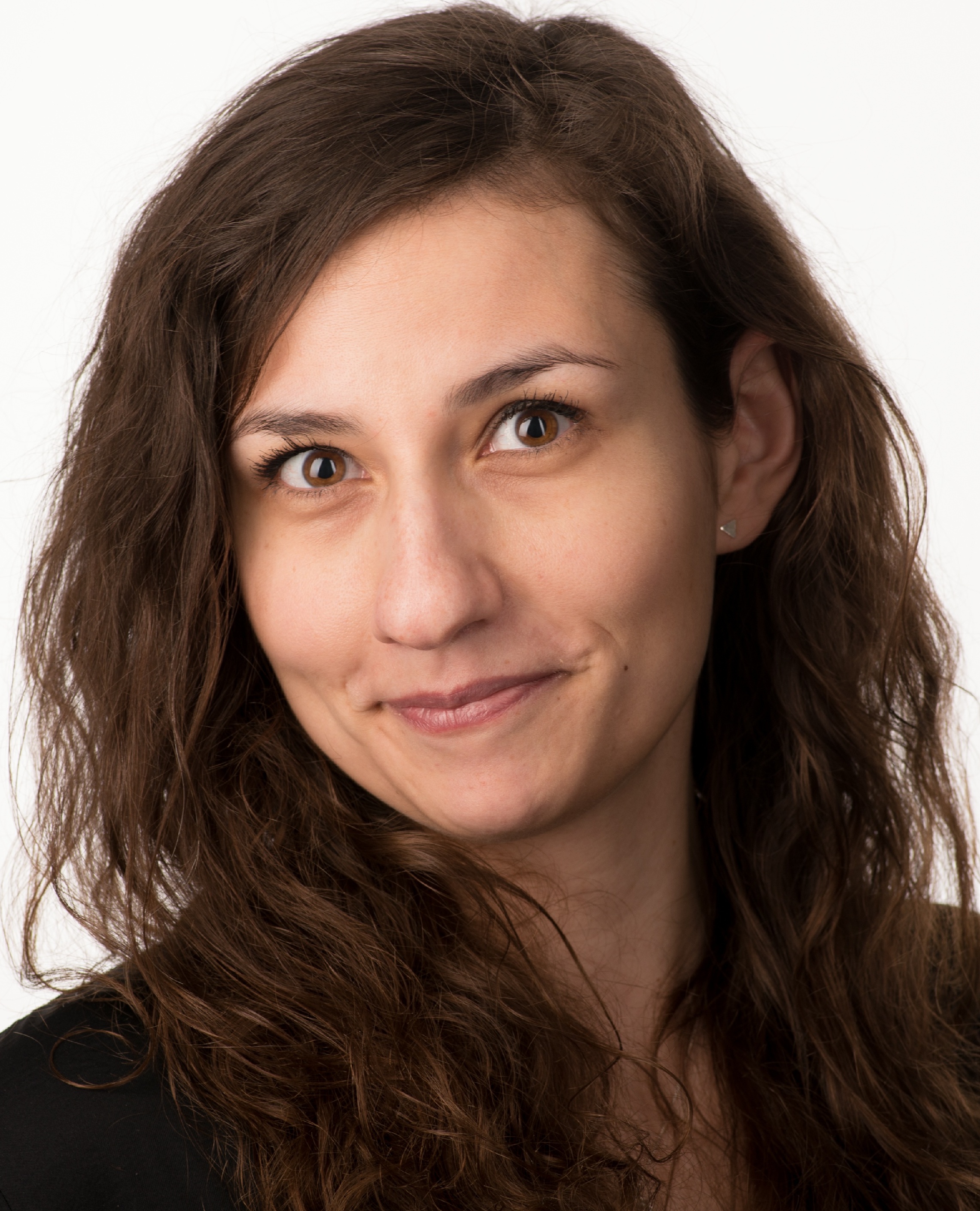 Rima-Maria Rahal studied psychology in Heidelberg and Amsterdam, and received her doctorate from Leiden University for her dissertation on the cognitive foundations of decisions in social and moral dilemmas, which she worked on at the Max Planck Institute for Research on Collective Goods in Bonn. She currently works on developing the use of physiological measures in social decision-making contexts at Tilburg University. She is a former fellow of the Fellowship Freies Wissen, working on developing an open online course on the methodological basics of scientific experimentation, incorporating open science practices.
Rima-Maria Rahal studied psychology in Heidelberg and Amsterdam, and received her doctorate from Leiden University for her dissertation on the cognitive foundations of decisions in social and moral dilemmas, which she worked on at the Max Planck Institute for Research on Collective Goods in Bonn. She currently works on developing the use of physiological measures in social decision-making contexts at Tilburg University. She is a former fellow of the Fellowship Freies Wissen, working on developing an open online course on the methodological basics of scientific experimentation, incorporating open science practices.
Oliver Scherer (Karlsruhe Institute of Technology)
Oliver Scherer works as a computer science researcher at KIT since 2014
and started teaching Rust regularly in 2016. Since Rust 1.0 he
contributed frequently to the Rust compiler and its constant evaluator
and has joined the compiler team in 2018. In his time at KIT he mentored
several bachelor theses on developing embedded software safely by using
Rust specific features.
Robert Ulrich (Karlsruhe Institute of Technology)
Robert Ulrich works at the Karlsruhe Institute of Technology for the KIT
Library. As a member of the Serviceteam RDM@KIT he helps to structure and
coordinate activities concerning the research data management (RDM). As he cares
for international services like re3data in his role as IT specialist, he also
contributes to shape the service landscape and processes for RDM and supports
scientists in all stages of the research data lifecyle. He is a member of the
DataCite re3data Working Group, RDA-DE, AK-FDM-BW and other research data
related networks.
Peter Tröger (Beuth University of Applied Sciences)

Peter Tröger is a professor for distributed systems at the Beuth University of Applied Sciences in Berlin. He got a doctoral degree in computer science during his time at the Hasso Plattner Institute in Potsdam. Peter also spend some time an the Blekinge Institute of Technology (Sweden) and at Chemnitz University of Technology. He works on different research questions related to the increasing uncertainty of reliability analysis for modern IT systems.
Peter has a long-standing relation to high-performance and high-throughput computing due to his work in the Distributed Resource Management Application API (DRMAA) group in the Open Grid Forum. He developed and maintained the Condor DRMAA library for several years, and still acts as maintainer for the current DRMAAv2 specification.
Kerstin Wedlich-Zachodin (Karlsruhe Institute of Technology)
 Dr. Kerstin Wedlich-Zachodin is employed as a research associate at the research services of the KIT-Library and is currently in charge of the RDMO (Research Data Management Organiser) project at KIT, providing support for researchers in research data management. She is an ecologist and did her PhD in Environmental Science at the University of York, UK. She worked as a researcher before at the Stockholm Environment Institute and at the University of Hohenheim before she came to KIT in 2018.
Dr. Kerstin Wedlich-Zachodin is employed as a research associate at the research services of the KIT-Library and is currently in charge of the RDMO (Research Data Management Organiser) project at KIT, providing support for researchers in research data management. She is an ecologist and did her PhD in Environmental Science at the University of York, UK. She worked as a researcher before at the Stockholm Environment Institute and at the University of Hohenheim before she came to KIT in 2018.
References
[1] https://www.scc.kit.edu/ueberuns/jrg-fine.php
[2] http://www.icl.utk.edu/~hanzt/
